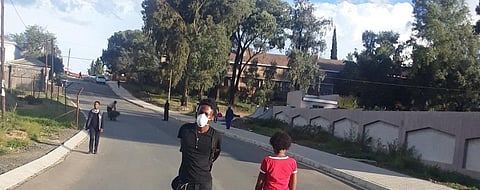

The number of novel coronavirus disease (COVID-19) cases in Africa have doubled between March 14 and March 18, 2020, according to latest World Health Organization (WHO) data.
A number of factors could endanger the lives of millions of Africans if timely measures are not taken, a key WHO official for the continent warned on March 19.
Matshidiso Moeti, WHO’s regional director for Africa was addressing the WHO Africa Media Leader briefing on COVID-19, conducted by the World Economic Forum.
Till now, more than 760 confirmed cases of coronavirus and 19 deaths across 34 countries have been recorded in Africa. Egypt recorded the most, with 210 cases, followed by South Africa (150 cases) and Algeria (82). Egypt and Algeria, both have recorded seven deaths each.
Besides the winter, other problems that African countries could face include high density and poor water security.
In many parts of Africa, people live in close quarters to each other, Lucile Imboua-Niava, WHO Representative for Senegal, said at the meeting.
Washing hands is amongst a key measure recommended by the WHO to slow the spread of the disease. “Sometimes, families live in houses where quite a few people have to sleep in the same space that do not have running water. So, the possibility of hand washing frequently and with soap is a challenge,” Moeti noted.
Africa also has regions with large populations of people displaced by war and humanitarian crises. Hence, the WHO should work with non-profits to improve access to water and sanitation, as it has in the past for cholera outbreaks, suggested Michel Yao, head of the WHO Country Office.
The continent also suffers from a lack of testing kits as well as sufficient intensive care units, Meoti said. The WHO will work on these problems, she added.
Other factors like HIV and malnutrition will also make the population vulnerable to the disease, other experts said.
However, there was one silver lining in all this, according to Moeti. Africa’s extensive experience in dealing with disease outbreaks was an asset, she said. In fact, some of the work done by WHO to tackle COVID-19 was based on community platforms, learnings and mechanisms that were set up to respond to the Ebola outbreak.
A number of African countries have begun imposing an array of preventive and containment measures in in place. However, social distancing needed to be redefined in poor developing countries where the population density was high, Moeti said.